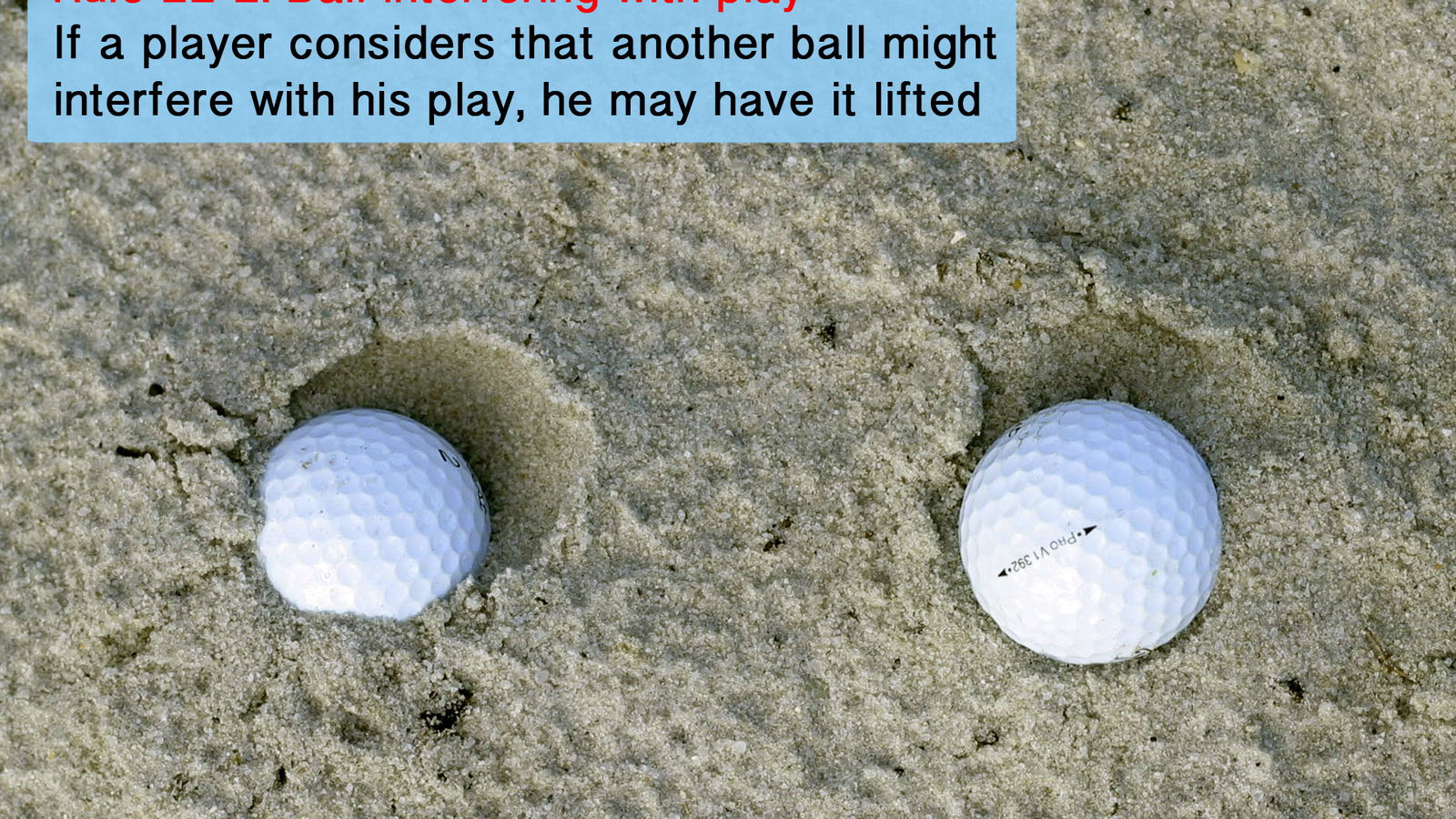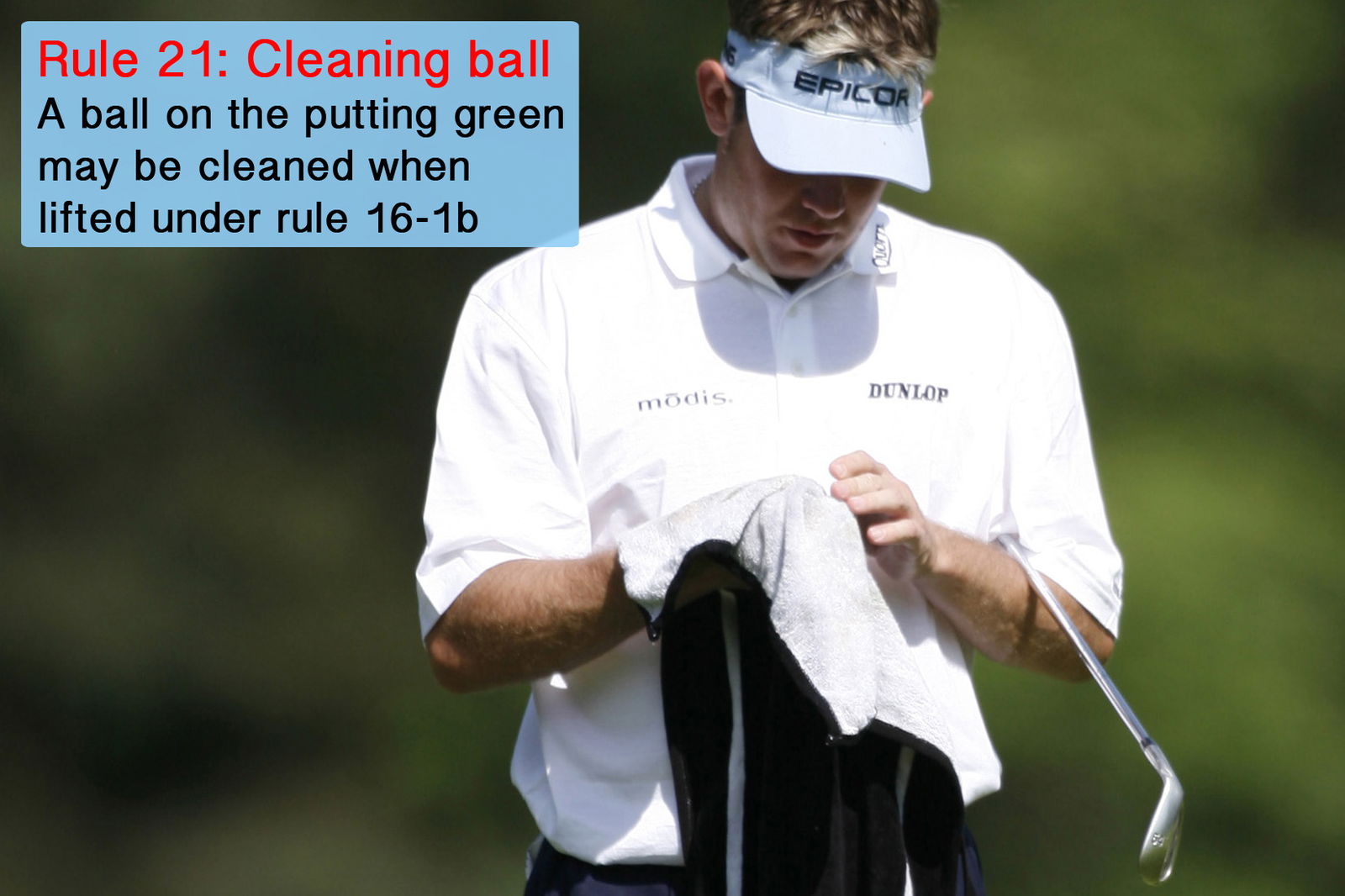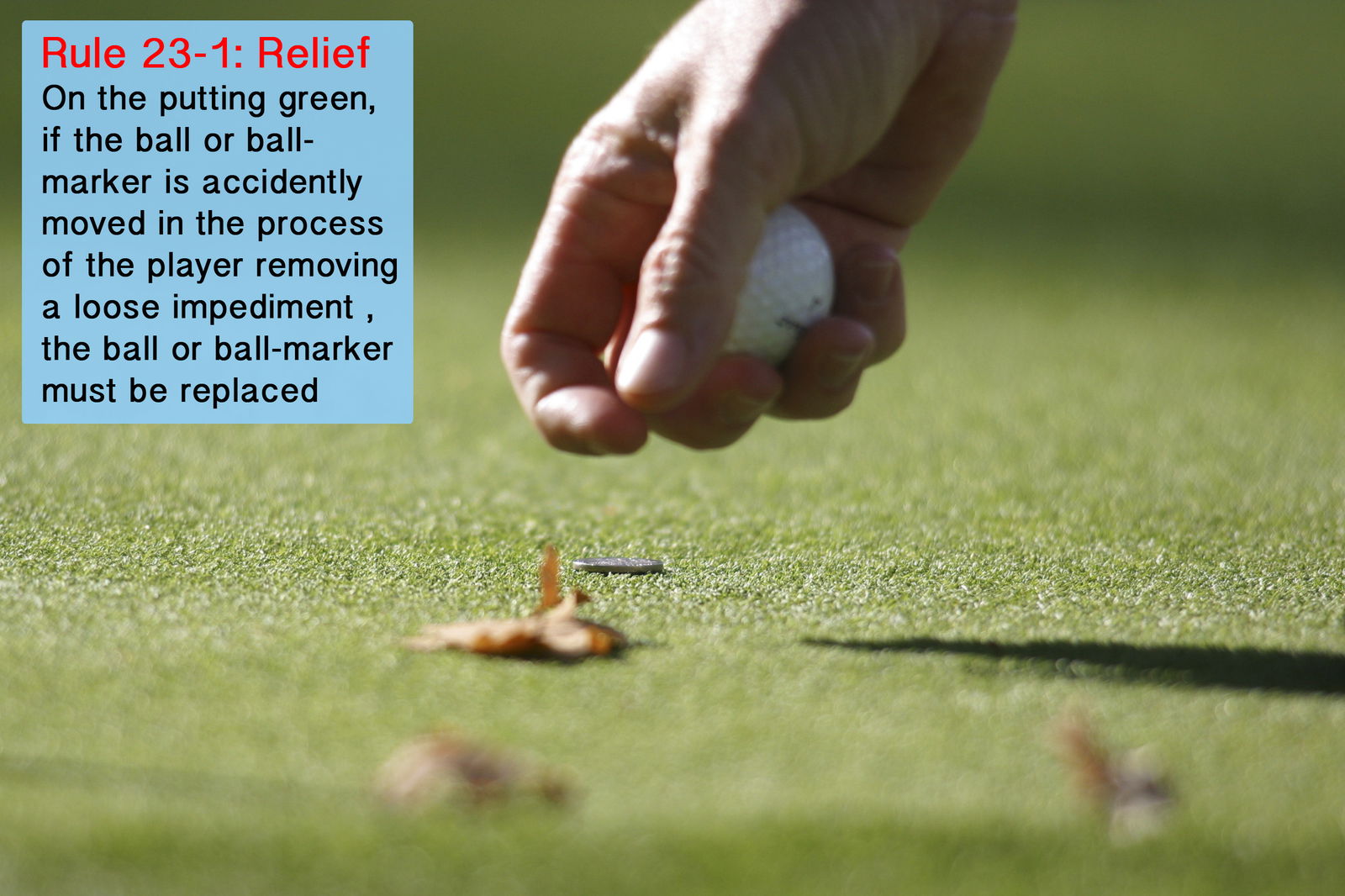Golf Rule 22: Ball assisting or interfering with play
What happens when your ball interferes with play? Check out this rules article to find out

Rule 22: Ball assisting or interfering with play
One of the official 34 Rules of Golf.
22-1: Ball Assisting Play
Except when a ball is in motion, if a player considers that a ball might assist any other player, he may:
a) Lift the ball if it is his ball; or
b) Have any other ball lifted.
A ball lifted under this Rule must be replaced (see Rule 20-3). The ball must not be cleaned, unless it lies on the putting green (see Rule 21).
In stroke play, a player required to lift his ball may play first rather than lift the ball.
In stroke play, if the Committee determines that competitors have agreed not to lift a ball that might assist any competitor, they are disqualified.
Note: When another ball is in motion, a ball that might influence the movement of the ball in motion must not be lifted.
PENALTY FOR BREACH OF RULE:
Match play – Loss of hole; Stroke play – Two strokes.
22-2: Ball Interfering with Play
Except when a ball is in motion, if a player considers that another ball might interfere with his play, he may have it lifted.
A ball lifted under this Rule must be replaced (see Rule 20-3). The ball must not be cleaned, unless it lies on the putting green (see Rule 21).
In stroke play, a player required to lift his ball may play first rather than lift the ball.
Note 1: Except on the putting green, a player may not lift his ball solely because he considers that it might interfere with the play of another player. If a player lifts his ball without being asked to do so, he incurs a penalty of one stroke for a breach of Rule 18-2a, but there is no additional penalty under Rule 22.
Note 2: When another ball is in motion, a ball that might influence the movement of the ball in motion must not be lifted.
PENALTY FOR BREACH OF RULE:
Match play – Loss of hole; Stroke play – Two strokes.

